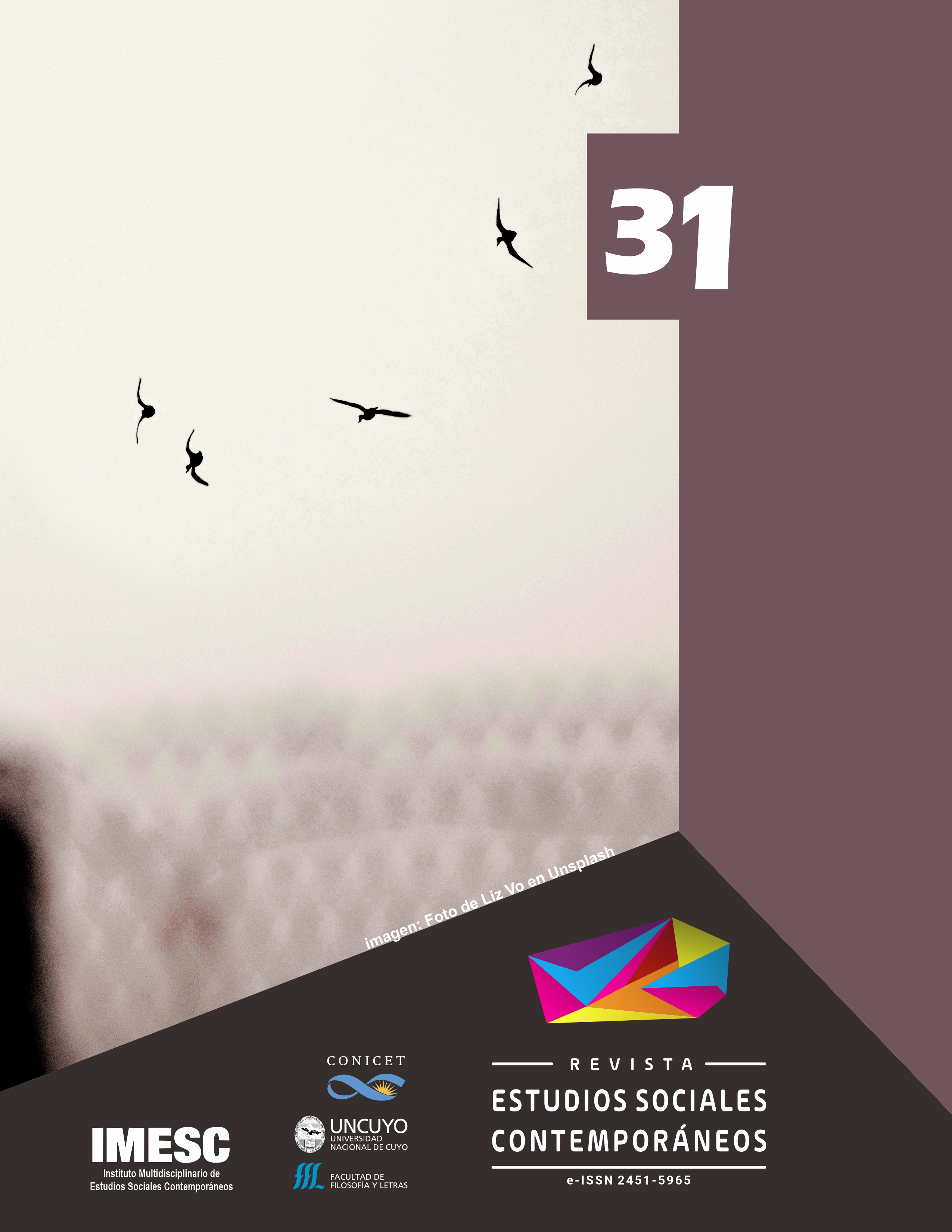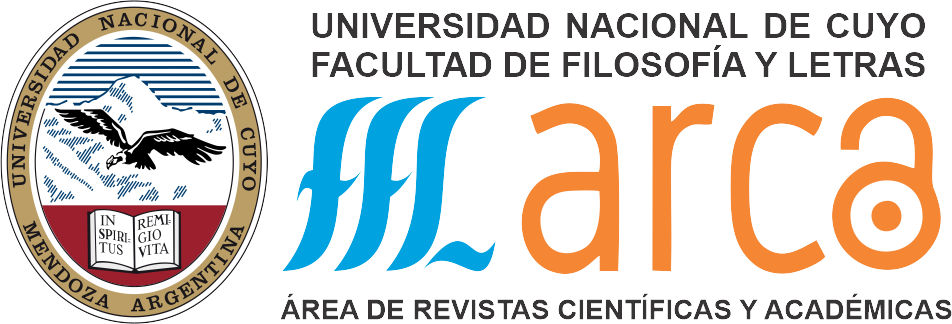Hacer y deshacer Género
Experiencias de Gays en la Corporación Policial
DOI:
https://doi.org/10.48162/rev.48.083Palabras clave:
cuerpos, sujetos, género, homosexualidad, performatividadResumen
En las organizaciones, las normas de género actúan sobre los cuerpos, obligando a los sujetos, para existir, a someterse al poder, a “juegos de verdad”, a prácticas de disciplina y normalización. En las organizaciones militares, ser gay es visto como algo fuera de lo común —tanto dentro de la Corporación como por la sociedad—, ya que allí se construyó un ideal de virilidad. De esta manera, nuestro objetivo en este estudio fue comprender el hacer y el deshacer de género entre hombres homosexuales en una organización policial. Los resultados del estudio se construyeron a partir de entrevistas semiestructuradas aplicadas a 11 militares homosexuales de la Policía Militar de Paraná (PMPR), Brasil, quienes fueron analizados a través de un "análisis artesanal" que cruza la teoría del discurso de Foucault y las perspectivas de la crítica. Análisis del Discurso (CDA). Los principales resultados muestran que los policías homosexuales de la PMPR atraviesan, durante sus experiencias en la profesión, un complejo y multifacético proceso de (des)construcción de género que involucra la interacción entre la identidad sexual y de género de los policías y las expectativas normativas de la corporación ( de la que forman parte y por tanto refuerzan) y la sociedad en general.
Citas
Acker, J. (1990). Hierarchies, jobs, bodies: a theory of gendered organizations. Gender and Society, 4(2), 139-158.
Alves, R. D. R., & Rosa, F. S. (2022). Práticas LGBTfóbicas e a saúde mental do (da) policial LGBT+ no Brasil. Revista Brasileira de Ciências Policiais, 13(7), 141–180. https://doi.org/10.31412/rbcp.v13i7.886
Bergström, O., & Knights, D. Organizational discourse and subjectivity: subjectification during processes of recruitment. Human Relations, 59(3), 351-377. DOI: 10.1177/0018726706064179
Butler, J. (2021). Relatar a si mesmo: crítica da violência ética (1ª ed.) Autêntica.
Butler, J. (2020). Vida precária: os poderes do luto e da violência. Autêntica.
Butler, J. (2019a). Corpos que importam: os limites discursivos do "sexo". N-1 Edições.
Butler, J. (2019b). A vida psíquica do poder: teorias da sujeição. Autêntica.
Butler, J. (2019c). Problemas de gênero: feminismo e subversão da identidade (18ª ed). Civilização Brasileira.
Butler, J., & Athanasiou, A. (2013). Dispossession: the performative in the political. Polity.
Butler, J. (2009). Frames of war: when is life grievable? Verso.
Butler, J. (2004). Undoing gender. Routledge.
Fleming, P. (2007). Sexuality, Power and Resistance in the Workplace. Organization Studies, 28(2), 239-256.
Foucault, M. (2019). História da Sexualidade 2: o uso dos prazeres (6ª ed). Paz & Terra.
Foucault, M. (2018a). História da Sexualidade 1: a vontade saber (7ª ed.). Paz & Terra.
Foucault, M. (2018b). Microfísica do Poder (8ª ed.). Paz & Terra.
Foucault, M. (2014). Vigiar e Punir: nascimento da prisão (42º ed.). Vozes.
Foucault, M. (2006). Estratégia, poder-saber (2ª ed.). Forense Universitária, 2006.
Foucault, M. (2001). Os anormais: curso no Collège de France (1974-1975). Martins Fontes.
Foucault, M. (1999). Em defesa da sociedade: curso no Collège de France (1975-1976). Martins Fontes.
Foucault, M. (1982). The subject and power. Critical Inquiry, 8(4), 777-795.
Gaulejac, V. (2007). Gestão como doença social: ideologia, poder gerencialista e fragmentação. Ideias & Letras.
Giddings, L. S., & Pringle, J. K. (2011). Heteronormativity at work: stories from two lesbian academics. Women’s Studies Journal, 25(2), 91-100.
Hancock, P., & Tyler, M. (2007). Un/doing Gender and the Aesthetics of Organizational Performance. Gender, Work and Organization, 14(6), 512-533.
Harding, N. H., Ford, J., & Lee, H. Towards a performative theory of resistance: senior managers and revolting subject(ivitie)s. Organization Studies, 38(9), 1-23.
Irigaray, L. (1993). Je, tu, nous: toward a culture of difference. Routledge.
Jackson, S., & Scott, S. (2001). Putting the body’s feet on the ground: towards a sociological reconceptualization of gendered and sexual embodiment. In K. Backett-Milburn & L. McKie. (Edit.). Constructing gendered bodies (pp.9-24). Palgrave.
Jansen, J., & Wehrle, M. (2018). Normal body: emale bodies in changing contexts of normalization and optimization. In Fischer, C., & Dolezal, L. (Edit.). New Feminist Perspectives on Embodiment (pp.37-55). Palgrave Macmillan.
Kerfoot, D. (2002). Managing the "professional" man. In M. Dent & S. Whitehead (Edit.). Managing professional identities: knowledge, performativity and the “new" professional (pp.81-95). Routledge.
Lima, R. K. (2021). Direitos Civis, Estado de Direito e "cultura policial": a formação policial em questão. Revista Campo Minado, 1, 95-113.
Miskolci, R. (2013). O desejo da nação: masculinidade e branquitude no Brasil de fins do XIX. Annablume.
Morrow, R. (1995). Sexuality as discourse: beyond Foucault’s constructionism. The Australian and New Zealand Journal of Sociology, 31(1), 15-31. https://doi.org/10.1177/144078339503100102
Oerton, S. (1996). Sexualizing the organization, lesbianizing the women: gender, sexuality and ’flat’ organizations. Gender, Work and Organization, 3(1), 26-37. https://doi.org/10.1111/j.1468-0432.1996.tb00046.x
Parker, M. (2001). Fucking management: queer, theory and reflexivity. Ephemera, 1(1), 36-53. https://ephemerajournal.org/sites/default/files/2022-01/1-1parker.pdf
Pavaneli, A., & Barreto, H. (1018, Agosto 13) Concurso da PM do Paraná tem ‘masculinidade' como critério de avaliação psicológica. G1. https://g1.globo.com/pr/parana/noticia/2018/08/13/concurso-da-pm-do-parana-tem-masculinidade-como-criterio-em-avaliacao-psicologica.ghtml
Persson, A. (2011) An Unintended Side Effect of Pepper Spray: Gender Trouble and ‘‘Repair Work’’ in an Armed Forces Unit. Men and Masculinities, 15(2), 132-151. https://doi.org/10.1177/1097184X11429596
Powell, A., Bagilhole, B, & Dainty, A. (2009). How women engineers do and undo gender: consequences for gender equality. Gender, Work & Organization, 16(4), 411-428. https://doi.org/10.1111/j.1468-0432.2008.00406.x
Preciado, B. (2014). Manifesto contrassexual. N-1 edições.
Priola, V., Lasio, D., Serri, F., & De Simone, S. (2018). The organisation of sexuality and the sexuality of organisation: a genealogical analysis of sexual ‘inclusive exclusion’ at work. Organization, 26(6), 1-23. https://doi.org/10.1177/1350508418790140
Riach, K., Rumens, N. & Tyler, M. (2014). Un/doing Chrononormativity: Negotiating Ageing, Gender and Sexuality in Organizational Life. Organization Studies, 35(II), 1677-1698. https://doi.org/10.1177/0170840614550731
Rumens, N., & Kerfoot, D. (2009). Gay men at work: (Re)constructing the self as professional. Human Relations, 62(5), 763-786. DOI: 10.1177/0018726709103457
Safatle, V. (2021). Posfácio: dos problemas de gênero a uma teoria da despossessão necessária: ética, política e reconhecimento em Judith Butler. In J. Butler. Relatar a si mesmo: crítica da violência ética (pp.173-196). Autêntica.
Souza, E. M. de, Costa, A. de S. & Pereira, S. J. N. (2015). A Organização (in)corporada: ontologia organizacional, poder e corpo em evidência. Cadernos Ebape, 13(4), 727-742. http://dx.doi.org/10.1590/1679-395118624
Tyler, M. (2020). Judith Butler and Organization Theory. Routledge.
Weeks, J. (2007). Discourse, desire and sexual deviance: some problems in a history of homosexuality. In R. Parker & P. Aggleton. (Edit.). Culture, society and sexuality: a reader (2ª ed., pp.125-149). Routledge.
West, C., & Zimmerman, D. (1987). Doing gender. Gender and Society, 1(2), 125-151. http://www.jstor.org/stable/189945
Witz, A., Halford S., & Savage, M. Organized bodies: gender, sexuality and embodiment in contemporary organizations. In L. Adkins & V. Merchant. (Eds.), Sexualizing the social: power and the organization of sex (pp.173-190). Palgrave Macmillan.
























